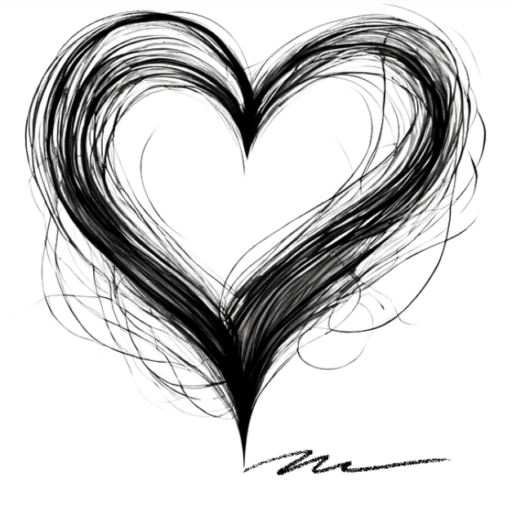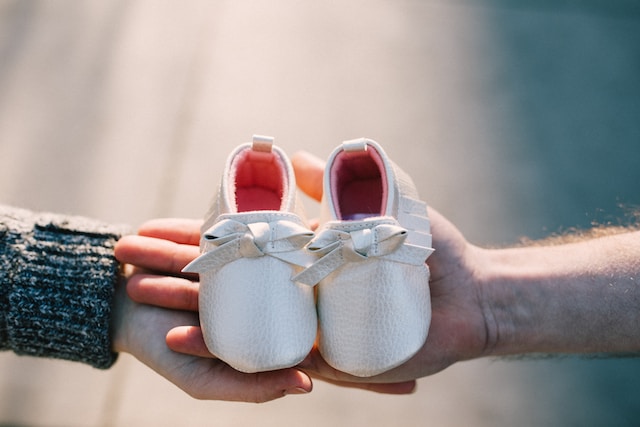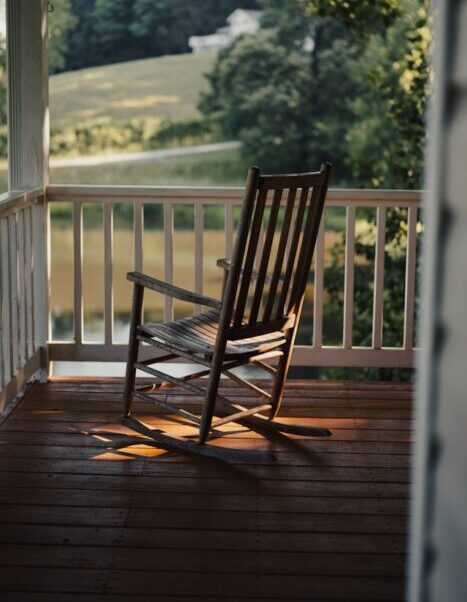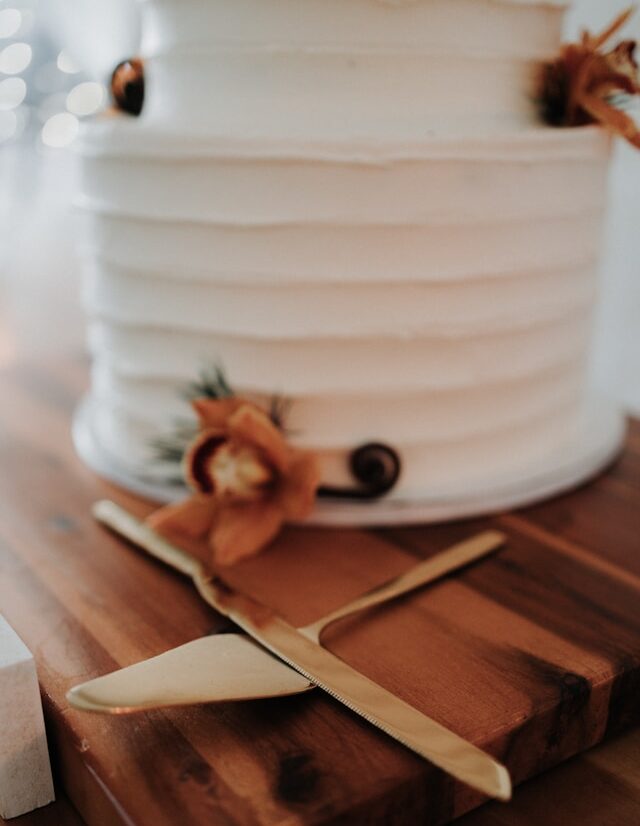Whose Shoes to Fill
On my bureau sits a pair of my baby shoes. Vintage white leather high-tops, cracked with age, toes scuffed raw to a dusty brown. Caked in spots with dried mud from the yard of the house I grew up in, their laces a matching shade of mud puddle. As I contemplate them, they return my gaze evenly from all ten of their eyelets. I imagine myself running in them with the choppy gait of a toddler, splashing through the late fall mash of grass, leaves, and fallen fruit, pulling the sweet air of decay into my pint-sized lungs.
These shoes were bequeathed to me after my father died in 2021. When I outgrew them, dad laid claim to them, inducting them into the hodgepodge of stuff hanging above his workbench in the garage: old license plates; a crow call; a pair of crow feathers. When my parents sold the house, the shoes moved with them, eventually coming to rest atop the television set in dad’s assisted living apartment. Like a loose hood ornament vibrating intermittently from the bombast of Fox News at full blast.
Dad and I rarely managed to tune into the same frequency. Our prickly dissonance made it nearly impossible to navigate the confines of a room together. Occasionally, in the spacious cathedral of woods flanking our property, we harmonized. Working together wordlessly, we cut and stacked wood, the repetition and the drone of the chainsaw cocooning us in our own thoughts and drowning out the static of misunderstanding.
“We walk the same path, but got on different shoes, live in the same building, but we got different views.” – Lil’ Wayne, featuring Drake, Right Above It
Dad was the product of immigrants who left Alsace as it struggled to re-orient itself from German to French control following WWI. My grandparents arrived in America with trunks stuffed full of Old World ways, including hard work and heavy-handed German parenting tactics. Dad remained true to the heritage, working 12-hour days running the family bakery and refusing to use his precious free time to entertain feelings, questions, or independent thinking.
I was an afterthought, born 10 years after my siblings. Early on, I began leaking anxiety – at times a trickle, at others, a torrent. I feared blood; germs; vomiting; the dentist; anger; sadness; separation; mortality. My porousness left me susceptible to absorbing the complicated and unacknowledged emotional states of others. The emotional runoff collected inside me, pooling in a deep reservoir where I also hid an unbearable discomfiture about myself.
Dad seemed alternately bewildered and offended by my sensitivities and utterly incapable of responding with either curiosity or empathy (the word “empathy” was, ironically, introduced into English as a translation of the German word “einfühlung” – literally “in-feeling”). Instead, he reflexively quashed any perceived challenge to his authority. I, in turn, learned to fear and avoid him, at the same time secretly taking his inventory as selfish, ignorant, and dogmatic.
“Before you abuse, criticize, and accuse, walk a mile in my shoes.” – Elvis Presley, Walk a Mile in My Shoes
Despite my growing disdain, I also admired dad – his certainty, his sense of adventure, his masculinity. Assigned female at birth and raised as a girl, I instinctively raided dad’s closet for dress-up. For a while, he indulged me, patiently teaching me to tie Windsor knots; letting me comb his Bryl Cream through my hair; chuckling as I shuffled like a clown in his shoes. The extravagance ended when puberty snuck up on us. Dad lowered the boom, based on what he had been taught about gender and propriety.
As dad approached 50, his blood pressure and cholesterol levels ratted out his stress level, and I started having recurring nightmares about his death. He took up jogging, so I tagged alongside him like a watch dog as he laboriously jog-walked up and down our long driveway. That Christmas, I gave him a pair of red Converse running shoes from the clearance table at JC Penney. Red was not in dad’s bland color palette, but he wore those shoes for at least 20 years, into the pink fade of a sunset.
I married at age 24 and had a baby at 29. The decisions aligned with dad’s blueprint for a daughter, and he finally seemed to be able to make sense of me; I was no longer a stranger. Seven years in, I came out as queer and left the marriage. To me, it was a hard-won victory of self-determination; to dad, it was an act of betrayal. The connection that had seemed so sure in the context of my false persona disintegrated in an instant.
“Empathy is fragile, though…easily switched off with regards to outsiders or members of other species. We’ve evolved to hate our enemies, to ignore people we barely know, and to distrust anybody who doesn’t look like us.” – Frans de Waal, The Evolution of Empathy
For the next 15 years, dad and I held one another at arm’s length, never fully cutting ties, but eyeing one another with suspicion and resentment. Then I came out again, as a transgender man. Dad was 87, miserable and myopic with the pain of losing my mother to Alzheimer’s Disease and the failures of his own body. He rejected my name change and continued referring to me as his daughter. I seethed with rage. Decades of mutual misunderstanding bubbled like hot magma, threatening to erupt and smother any remaining good will.
The pandemic forced a détente between us, then dad died. Looking back, I see it as the perfect storm: an empathic queer kid, born to a first generation father steeped in cultural reserve and conservative ethos. Yet my baby shoes suggest an alternate perspective. Unable to walk in my shoes, dad carried them with him. It was his way of connecting. I contemplate the shoes again. I feel soothed by my inheritance.
“Yours are the only shoes made to walk your journey.” – Charles Glassman, Brain Drain

Keith Aron is an emerging writer living in Western Massachusetts. His writing focuses on life viewed through a kaleidoscope of vantage points, including both sides of the gender binary, various spots on the class continuum, and along an arc of recovery. Nearsighted his whole life, he now marvels at the 20/20 vision of hindsight and the crisp lines edging life’s absurdities.



